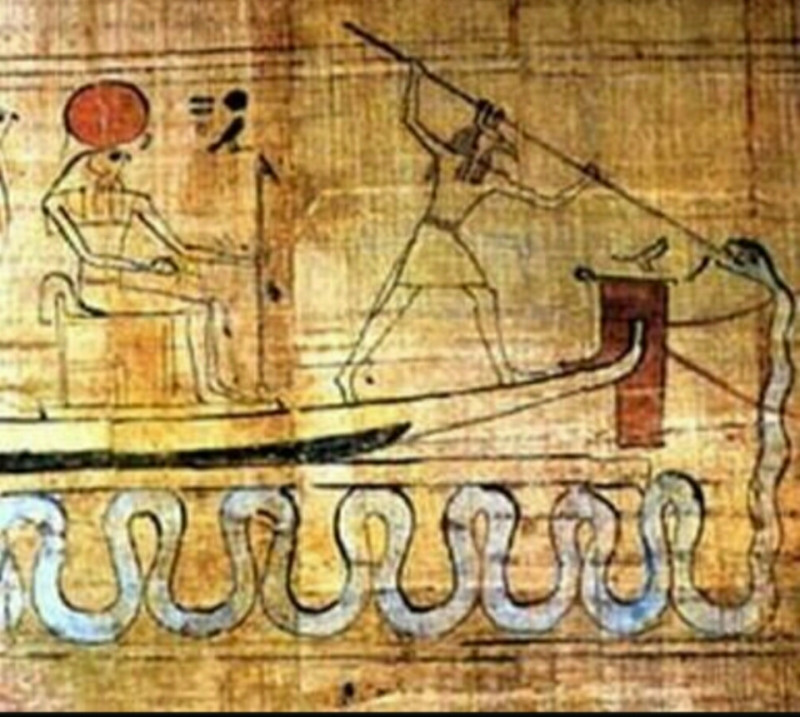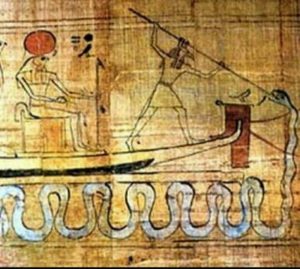Hi. My name is Rodhi, I’m originally from Brazil, but I currently live in a small town in Central Texas with my wife and three kids. For awhile I’ve been dreaming of becoming a contributor to Zero Equals Two because as a Thelemite, not only I have been many times lost in the sauce while reading the Holy Books of Thelema, but also because I find this the most fitting medium to share some of my own insights as I grapple with Crowley’s intelligence.
I try not to simplify the gods and heed to the warnings from Liber Librae “neither mock nor revile them, for so assuredly wilt thou be led into error.” Still, it was while reading “Seth, God of Confusion” by H. Te Velde that I ran across a quote by the late Dutch poet and religious historian Theo van Baaren who I believe summarizes best my issue with reductionism:
“For a long time, it was the conviction of scholars that the fact that one and the same deity might display divergent and sometimes even contradictory qualities could best be explained by assuming that such a god had resulted by a historical process from several simple deities. This train of thought is based on a rationalistic misunderstanding and a failure to appreciate the nature of religious experience. In essence, each important god comprises all possibilities. Gods can not be sorted out like buttons.”
All possibilities. Thelema captures very well this essence in the words of our Lady Nuit, the continuous one of Heaven, who invites us to experience the joy of dissolution:
“Since I am Infinite Space, and the Infinite Stars thereof, do ye also thus. Bind nothing! Let there be no difference made among you between any one thing & and any other thing (…).” – Liber AL I:22.
Recently though, I was doing one of my readings of the Holy Books of Thelema and the opening line of Liber Stellae Rubeae struck me as I felt it expanding the possibilities of my brain the more I meditated on it:
“Apep deifieth Asar.”
Here we see two deities.
Apep, or Apophis, known as the serpent of chaos who charges daily against the solar barque.
Asar, or Osiris, the slain God, avenged by Horus, known as Lord of the Underworld after his resurrection.
Despite the richness and complexity and even contradiction to these gods, if we simplify them like the common folk do, they become mere personifications of Good and Evil. This time though, we should not be led into error because to say that Apep deifies Asar is like saying that Satan deifies God, Judas deifies Jesus, Maya deifies Buddha, Arihman deifies Ahura Mazda, pick your myth. Meditation on the first line of Liber LXVI can be an invitation to move from dualism to nondualism as we come to realize that in their polarity is also their necessity. There is no difference. There could be no God without Satan to make him God. Jesus could not fulfill his True Will without Judas. Buddha wouldn’t break free from the illusion without Maya. Simply like that, we can stop reviling the devil, we can reject the vilification of Evil, we can reconcile both Good and Evil inside of us.
Of course, there is plenty of more in-depth analysis one can make of the verse. J. Daniel Gunther’s books allowed me to understand Asar as myself and Apep, the serpent of destruction, the bringer of darkness, as a step on this Inward Journey towards my own awakening as Asar-Un-Nefer, Myself Made Perfect. And yes, “Apep deifieth Asar” might be Aleister Crowley’s homage to his mistress The Sphinx, but it would be mockery to dismiss it as just a reference to Ada Leverson. In Thelema, it can be all of that in three words.
Nevertheless, it’s not my goal to exhaust the possibilities of interpretation here, but regularly converse and share what I got from the averse verses that strike my attention as I keep on reading the Holy Books of Thelema.



“Thou art Sebek the crocodile against Asar; thou art Mati, the Slayer in the Deep. Thou art Typhon, the Wrath of the Elements, O Thou who transcendest the Forces in their Concourse and Cohesion, in their Death and their Disruption. Thou art Python, the terrible serpent about the end of all things!” —LXV III:30